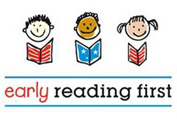
![]()
Developmentally Appropriate Practices (DAP)is a position statement set forth by the National Association for the Education of Young Children (NAEYC). NAEYC is the leading organization that guides the early childhood education profession. The organization has developed several position statements regarding critical issues, such as how to close the achievement gap and the importance of developing social emotional skills. Members of the organization and experts in the field provide feedback and build consensus on these issues.
The third and latest edition of Developmentally Appropriate Practice in Early Childhood Programs Serving Children from Birth through Age 8 was released in 2009. Over time, the position statement has undergone several iterations due to changing cultural factors, including most recently, the standards and accountability movement, concerns about the achievement gap, and the role of public schools in the pre-K–3 alignment trend (Copple & Bredekamp, 2009b).
Developmentally Appropriate Practices means “ensuring that goals and experiences are suited for [children’s] learning and development and challenging enough to promote their progress and interest” (Copple & Bredekamp, 2009a, xii). DAP is not a curriculum; rather, it is an explanation and framework of “how” to teach. The components that make Developmentally Appropriate Practices a framework include meeting children where they are, helping children meet challenging goals that are achievable, and using a variety of teaching strategies.
Read the full version of NAEYC’s position statement on DAP.
